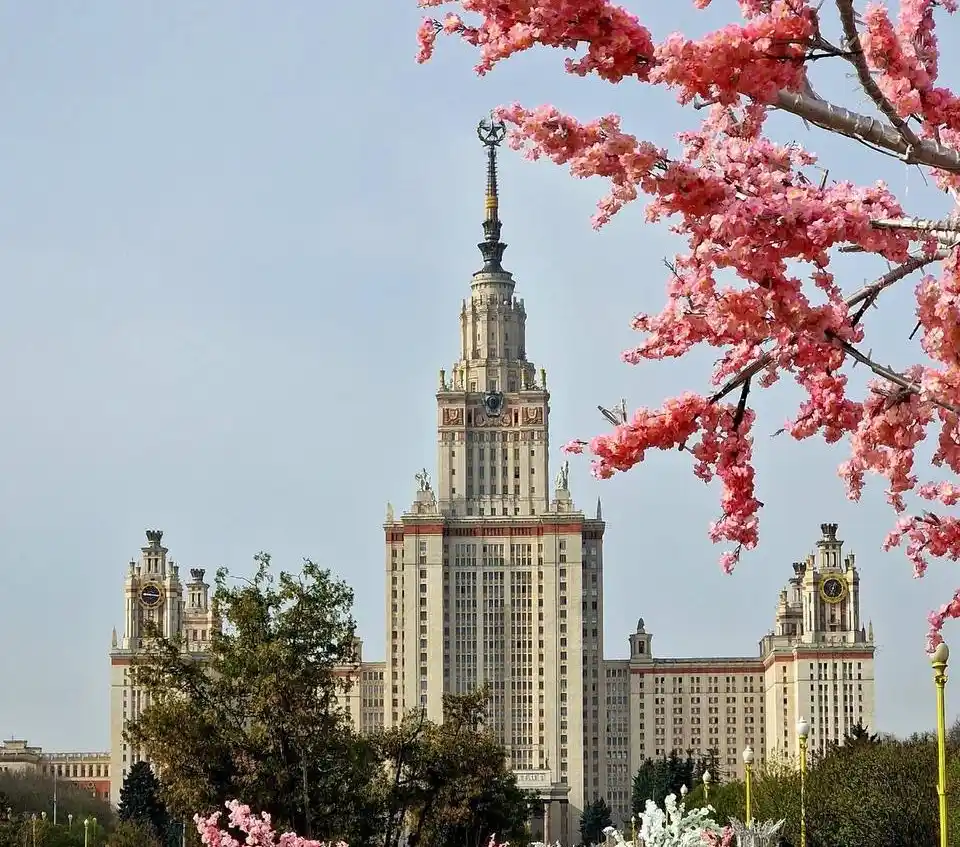Russian Government Scholarship

Degrees offered:
Undergraduate, Master’s and PhD
Application Deadlines of Russian Government Scholarship: From September 15 to December 10
Facilities of Russian Government Scholarship
- Free Tuition: For the entire duration of the chosen program.
- Monthly Stipend: The amount varies by university but typically ranges from 1,500 to 5,000 RUB (approximately 20 to 70 USD) per month.
- Accommodation: Dormitory accommodation is provided if available, with fees typically ranging from 500 to 5,000 RUB (7 to 70 USD) per month.
- Students allowed to do part-time jobs
- Some of the highest ranking universities are under Russian Government Scholarship
- The scholarship covers tuition and provides a monthly stipend but does not cover travel, food, communication services, or medical insurance
Requirements of Russian Government Scholarship
- Academic Qualifications: Applicants must hold a relevant degree with high academic score.
- Language Requirement: Proficiency in Russian is often required, but preparatory courses are available for those needing improvement. Some programs may also be offered in English.
- Documents: Required documents include a passport, educational certificates, and possibly a motivational letter and proof of current education level.
- For bachelor studies, you have to translate all the required academic documents in Russian language.
Application Process for Russian Government Scholarship 2024
- Find Information: Visit the StudyinRussia website or contact Rossotrudnichestvo offices or Russian embassies in your country for detailed information about available scholarships (Russian Higher Education for Foreigners Recognizable Name: EduRussia).
- Register Online: Create an account on the official scholarship portal, fill out the electronic form, and submit your application (Opportunities Corners) (Mastere.tn).
- Submit Documents: Upload the required documents, including educational certificates, passport, and any additional materials as specified in the application guidelines (Opportunities Corners).
- Selection Process: The application involves a portfolio competition and problem-solving challenges. Ph.D. candidates also need to choose a research supervisor and may undergo an interview (Opportunities Corners) (Mastere.tn).
Some common questions about Russian Government Scholarship
Does Russian Government Scholarship allow part-time job?
Yes, students on the Russian Government Scholarship can work part-time, but it should not interfere with their studies
Does Russian Government Scholarship provide air tickets?
No, the scholarship does not cover travel expenses. Students need to arrange and pay for their own travel to and from Russia
Does Russian Government Scholarship provide health insurance?
No, health insurance is not covered by the scholarship. Students are responsible for obtaining their own medical insurance
Is the stipend enough to bear daily expenses?
The stipend helps with daily expenses, but additional funds would be needed depending on the city and lifestyle of the student. Dormitory accommodation is reasonably priced, which helps reduce living costs.
Russian Government Scholarship review section
Let’s explore the journey of a student who is currently benefiting from the “Russian Government Scholarship.” In our conversation, they shared personal experiences, practical tips, and insights on how they secured the scholarship and what life is like as a recipient. If you’re seeking inspiration, guidance, or just a look into the opportunities this scholarship can offer, this interview offers valuable perspectives to help you on your own academic and professional journey.
Can you tell us a bit about yourself and your studies? I’m Shekhor Barua, currently pursuing a Bachelor’s degree in rocket science at Lomonosov Moscow State University.
Does the scholarship cover your food expenses? No, it doesn’t. I have to manage all my daily expenses with the stipend, but it’s not enough on its own. I do a part-time job to make ends meet.
Can the stipend cover your daily expenses? The stipend helps, but it’s not enough to cover all my expenses in a city like Moscow, where the cost of living is high. I need to budget carefully and work part-time to manage my costs. Some of my friends rely on their families for extra support.
Do you need to learn Russian to work part-time? Definitely. Most people don’t speak English here, so you need to know Russian to get a part-time job and communicate outside of campus.
How’s the university environment? It’s really supportive. There are plenty of resources, from academic help to cultural activities and student organizations, that make it easier for international students to settle in. I especially enjoy the student clubs, which get good support from the university.
What challenges do you face daily? The biggest challenge is the language barrier. Adjusting to a new culture and dealing with the bureaucracy can also be tough, but these issues get easier with time and the university’s support. Another thing I will mention about is the stipend amount is very low to bear my daily expenses. Even my health checkups fees are from my own pocket.
Any tips for standing out in the application process? My extracurricular activities made a big difference. I had a range of experiences, like national Olympics, volunteering, and running my own business. They look for qualities like leadership, public speaking, and adaptability. Even without language proficiency, my extracurriculars and academic scores helped me stand out.
Advice for future scholarship applicants? I will advise the students to prepare early for the scholarship. I can remember that I fell in problem to attest my certificates from the education board. It took my time and had to hurry to apply for the scholarship. I think you should prepare all the documents, even before the 6 month of the scholarships deadline.
Is Russian hard to learn? It can be, especially if you’re not familiar with Slavic languages. The grammar and pronunciation are quite different from English, but the preparatory course is helpful. I improved my Russian by interacting with native speakers.
Is studying in Russian difficult? It can be tough if you’re not fluent, but most programs offer support like language courses and tutors. Some programs are available in English, but learning Russian is still important for daily life and interactions.